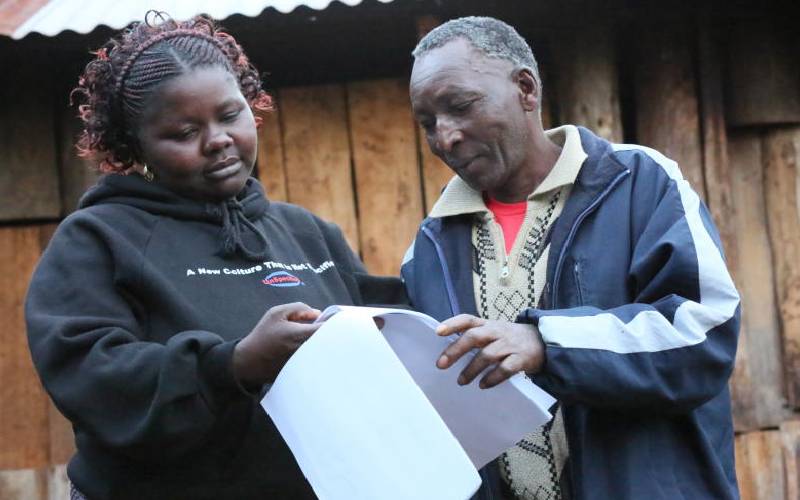×
The Standard e-Paper
Fearless, Trusted News

Grace Wamuyu has faced double heartbreak since her grandmother died two months ago. She has been grieving for weeks and, at the same time, is restless since the body is being detained over unpaid hospital bill.
Seated outside her grandmother’s wooden house at Ihwagi village in Mathira, Nyeri County, she recalls in grief the good companionship she had with her late grandmother Grace Wamuyu Muriithi.